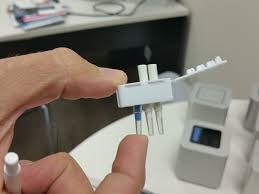
Breaking News
 Gold and Silver Surge to New Record Highs, What's Going On?
Gold and Silver Surge to New Record Highs, What's Going On?
 Silver And Copper Are Both Flashing The Same Signal -- And That Is Setting The Stage...
Silver And Copper Are Both Flashing The Same Signal -- And That Is Setting The Stage...
 I Spoke At Turning Point USA - FULL SPEECH
I Spoke At Turning Point USA - FULL SPEECH
 Maduro Must Go, DHS Secretary Noem Says, Vows More Tanker Intercepts
Maduro Must Go, DHS Secretary Noem Says, Vows More Tanker Intercepts
Top Tech News
 Perfect Aircrete, Kitchen Ingredients.
Perfect Aircrete, Kitchen Ingredients.
 Futuristic pixel-raising display lets you feel what's onscreen
Futuristic pixel-raising display lets you feel what's onscreen
 Cutting-Edge Facility Generates Pure Water and Hydrogen Fuel from Seawater for Mere Pennies
Cutting-Edge Facility Generates Pure Water and Hydrogen Fuel from Seawater for Mere Pennies
 This tiny dev board is packed with features for ambitious makers
This tiny dev board is packed with features for ambitious makers
 Scientists Discover Gel to Regrow Tooth Enamel
Scientists Discover Gel to Regrow Tooth Enamel
 Vitamin C and Dandelion Root Killing Cancer Cells -- as Former CDC Director Calls for COVID-19...
Vitamin C and Dandelion Root Killing Cancer Cells -- as Former CDC Director Calls for COVID-19...
 Galactic Brain: US firm plans space-based data centers, power grid to challenge China
Galactic Brain: US firm plans space-based data centers, power grid to challenge China
 A microbial cleanup for glyphosate just earned a patent. Here's why that matters
A microbial cleanup for glyphosate just earned a patent. Here's why that matters
 Japan Breaks Internet Speed Record with 5 Million Times Faster Data Transfer
Japan Breaks Internet Speed Record with 5 Million Times Faster Data Transfer
This Little Silver Cube Could Be the Future of Personal DNA Testing

Aside from the logo of Spartan Bioscience, the Canadian company behind it, there's nothing much that tells you what it can do. But this unassuming device holds within it a bona fide revolution—at least, according to the medical doctor behind its design.
Or, if you're a cynic, it's a Pandora's box.
I recently drove out to the Ottawa suburbs to pay a visit to the offices of Paul Lem, founder and CEO of Spartan Bioscience, and his team of over 70 bright-young-things. Lem says the Spartan Cube can perform a range of diagnostics, including infectious disease and genetics tests, quicker, and more cheaply, than many other DNA testing machines.

 Advanced Propulsion Resources Part 1 of 2
Advanced Propulsion Resources Part 1 of 2

